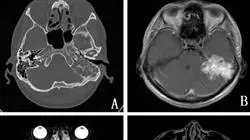University certificate
The world's largest faculty of medicine”
Introduction to the Program
This Professional master’s degree in Update in Oncologic Pathology for Pathologists will provide you with confidence in your profession, which will help you to offer a high-quality service to your patients"

The growing understanding of cancer biology and the different pathways by which the immune system is suppressed during tumor progression has led to the development of various immunotherapeutic strategies that increase the ability to eliminate emerging malignancies. Among these new therapies, anti-PD1 and anti-PDL1 antibodies are showing increasingly unprecedented efficacy. It is, therefore, essential that professionals keep up to date in the different areas of biomedical sciences in order to achieve an optimal understanding and an accurate therapeutic approach.
By presenting the Update on Oncologic Pathology in this Professional master’s degree, we ensure this requirement by addressing the most recent aspects which have a great impact on the etiopathogenesis, diagnosis, and prognosis of the most frequent malignant tumors. We use an integrative learning methodology in each of the modules, which excellently interrelates the new techniques and technologies involved in the diagnosis of neoplastic diseases. This not only helps professionals develop the skills required to make an accurate diagnosis, but also to prevent and try to modify, in any way possible, the outcome of the cancer patient.
This Professional master’s degree in Update in Oncologic Pathology for Pathologists offers the possibility to specialize in cancer treatment in order to become an excellent professional with expertise in the latest developments in the treatment of this type of disease.
The program is developed by a range of leading oncology professionals, who contribute their own professional experiences to the program, covering the most noteworthy advances and the most effective treatments in each of the cancer specialties that are studied throughout this program. A great opportunity for pathologists to specialize in Oncologic Pathology with the support of those who know the most about this subject.
Update your knowledge through the Professional master’s degree in Update in Oncologic Pathology for Pathologists”
This Professional master’s degree in Update in Oncologic Pathology for Pathologists contains the most complete and up-to-date scientific program on the market. The most important features of the program include:
- More than 75 practical cases presented by experts in oncologic pathology
- The graphic, schematic, and practical contents with which they are created provide scientific and practical information on the disciplines that are essential for professional practice
- Latest developments in oncologic pathology
- Practical exercises where the self-assessment process can be carried out to improve learning
- Special emphasis on innovative methodologies in oncologic pathology
- Theoretical lessons, questions to the expert, debate forums on controversial topics, and individual reflection assignments
- Content that is accessible from any fixed or portable device with an Internet connection
This Professional master’s degree may be the best investment you can make when selecting a refresher program for two reasons: in addition to updating your knowledge in Oncologic Pathology for Pathologists, you will obtain a qualification from TECH Global University”
The teaching staff includes oncologic pathology professionals, who contribute their experience to this program, as well as renowned specialists belonging to leading societies and prestigious universities.
The multimedia content, developed with the latest educational technology, will provide the professional with situated and contextual learning, i.e., a simulated environment that will provide an immersive program designed to learn in real situations.
This program is designed around Problem-Based Learning, whereby students must try to solve the different professional practice situations that arise during the course. For this purpose, the professional will be assisted by an innovative interactive video system created by renowned and experienced experts in the field of oncologic pathology with extensive medical experience.
Enhance your professional performance and improve your patients' quality of life"

Take the opportunity to learn about the latest advances in Oncologic Pathology and be more effective in your daily practice"
Why study at TECH?
TECH is the world’s largest online university. With an impressive catalog of more than 14,000 university programs available in 11 languages, it is positioned as a leader in employability, with a 99% job placement rate. In addition, it relies on an enormous faculty of more than 6,000 professors of the highest international renown.

Study at the world's largest online university and guarantee your professional success. The future starts at TECH”
The world’s best online university according to FORBES
The prestigious Forbes magazine, specialized in business and finance, has highlighted TECH as “the world's best online university” This is what they have recently stated in an article in their digital edition in which they echo the success story of this institution, “thanks to the academic offer it provides, the selection of its teaching staff, and an innovative learning method aimed at educating the professionals of the future”
A revolutionary study method, a cutting-edge faculty and a practical focus: the key to TECH's success.
The most complete study plans on the university scene
TECH offers the most complete study plans on the university scene, with syllabuses that cover fundamental concepts and, at the same time, the main scientific advances in their specific scientific areas. In addition, these programs are continuously being updated to guarantee students the academic vanguard and the most in-demand professional skills. In this way, the university's qualifications provide its graduates with a significant advantage to propel their careers to success.
TECH offers the most comprehensive and intensive study plans on the current university scene.
A world-class teaching staff
TECH's teaching staff is made up of more than 6,000 professors with the highest international recognition. Professors, researchers and top executives of multinational companies, including Isaiah Covington, performance coach of the Boston Celtics; Magda Romanska, principal investigator at Harvard MetaLAB; Ignacio Wistumba, chairman of the department of translational molecular pathology at MD Anderson Cancer Center; and D.W. Pine, creative director of TIME magazine, among others.
Internationally renowned experts, specialized in different branches of Health, Technology, Communication and Business, form part of the TECH faculty.
A unique learning method
TECH is the first university to use Relearning in all its programs. It is the best online learning methodology, accredited with international teaching quality certifications, provided by prestigious educational agencies. In addition, this disruptive educational model is complemented with the “Case Method”, thereby setting up a unique online teaching strategy. Innovative teaching resources are also implemented, including detailed videos, infographics and interactive summaries.
TECH combines Relearning and the Case Method in all its university programs to guarantee excellent theoretical and practical learning, studying whenever and wherever you want.
The world's largest online university
TECH is the world’s largest online university. We are the largest educational institution, with the best and widest online educational catalog, one hundred percent online and covering the vast majority of areas of knowledge. We offer a large selection of our own degrees and accredited online undergraduate and postgraduate degrees. In total, more than 14,000 university degrees, in eleven different languages, make us the largest educational largest in the world.
TECH has the world's most extensive catalog of academic and official programs, available in more than 11 languages.
Google Premier Partner
The American technology giant has awarded TECH the Google Google Premier Partner badge. This award, which is only available to 3% of the world's companies, highlights the efficient, flexible and tailored experience that this university provides to students. The recognition as a Google Premier Partner not only accredits the maximum rigor, performance and investment in TECH's digital infrastructures, but also places this university as one of the world's leading technology companies.
Google has positioned TECH in the top 3% of the world's most important technology companies by awarding it its Google Premier Partner badge.
The official online university of the NBA
TECH is the official online university of the NBA. Thanks to our agreement with the biggest league in basketball, we offer our students exclusive university programs, as well as a wide variety of educational resources focused on the business of the league and other areas of the sports industry. Each program is made up of a uniquely designed syllabus and features exceptional guest hosts: professionals with a distinguished sports background who will offer their expertise on the most relevant topics.
TECH has been selected by the NBA, the world's top basketball league, as its official online university.
The top-rated university by its students
Students have positioned TECH as the world's top-rated university on the main review websites, with a highest rating of 4.9 out of 5, obtained from more than 1,000 reviews. These results consolidate TECH as the benchmark university institution at an international level, reflecting the excellence and positive impact of its educational model.” reflecting the excellence and positive impact of its educational model.”
TECH is the world’s top-rated university by its students.
Leaders in employability
TECH has managed to become the leading university in employability. 99% of its students obtain jobs in the academic field they have studied, within one year of completing any of the university's programs. A similar number achieve immediate career enhancement. All this thanks to a study methodology that bases its effectiveness on the acquisition of practical skills, which are absolutely necessary for professional development.
99% of TECH graduates find a job within a year of completing their studies.
Professional Master's Degree in Oncologic Pathology Update for Pathologists
Oncologic pathologies represent one of the areas of greatest interest for modern medicine, with constant studies and research related to the understanding of their characteristics of appearance, development and propagation. This situation has allowed the continuous evolution of the sector, constantly generating new alternatives and opportunities for the optimal detection and treatment of this type of diseases. Understanding the need for academic updating that accompanies the continuous pace of development of the sector, at TECH Global University we have designed our Professional Master's Degree program in Oncologic Pathology Update for Pathologists. In this postgraduate course, special emphasis will be placed on the knowledge of new diagnostic alternatives for the detection of neural and neuroendocrine tumors. In addition, the following topics will be updated: the identification of the various biomarkers to be considered in the detection of tumors in the central nervous system; and the practical management of the processes of anatomopathological and molecular diagnosis of tumor lesions in the mediastinum.
Study a Professional Master's Degree online
The current complex context of oncological pathologies and its particularities in terms of their diagnosis make this sector one of the most demanding in terms of the degree of preparation and expertise of its specialized professionals. In our Professional Master's Degree program you will learn about the main advances in precision medicine and molecular biology in the field of oncological pathologies. In this way, the focus is on the modernization of the professional with respect to the following aspects: the identification of new therapeutic targets to be considered in the treatment and care of cases of ductal and lobular carcinoma; and the knowledge of the new molecular diagnostic alternatives used in the detection of cases of stomach cancer.







